Bachelor of Education (B.Ed.)
Programme Overview
The B.Ed programme at MIT-WPU aims to prepare upcoming teachers with crucial instructional skills and techniques. This extensive programme focuses on practical experiences, enabling students to participate in classroom environments from primary to higher secondary grades. The curriculum encourages collaborative learning, teamwork, and project-based approaches, enhancing practical skills in various teaching methods.
In accordance with NEP 2020, the B.Ed programme emphasises comprehensive education and ethical accountability, equipping graduates to address diverse learning requirements. Students gain from a combination of theoretical insights and hands-on training, enhanced by collaborations with industry for internships and job prospects. By focusing on innovation and leadership preparedness, the programme guarantees that graduates are fully equipped to influence the future of education.
Major Tracks
- Child Development
- Contemporary Education
- Innovative Teaching Learning
- Pedagogy of School Subject
- Gender School Society
- School Management
Duration & Fees
Duration
2 Years
Last Date to Apply : 06 April 2026
Fee Per Year
₹ 60,000
Scholarship
| Scholarship for AY 2025-26 | Graduation Aggregate marks | 12th Aggregate marks |
|---|---|---|
|
Dr. Vishwanath Karad Scholarship |
73 & Above |
80 & Above |
|
MIT-WPU Scholarship I |
70 & Above |
75 & Above |
|
MIT-WPU Scholarship II |
65 & Above |
70 & Above |
Note: Scholarships will be awarded based on the Graduation and Class 12/HSC score.
Terms & Conditions Apply:
- All Scholarships are awarded on a First Come First Serve basis. All Scholarships are awarded as fee adjustments.
- To continue the scholarship for the entire duration of the programme, a minimum level of the academic score has to be maintained at an 8 CGPA across all semesters, attendance is to be maintained at a minimum of 80 percent and there should be no disciplinary action against the student.
For more detailed information visit our website: https://mitwpu.edu.in/scholarships
Eligibility
Minimum 50% aggregate marks in a 3-year graduation or higher degree in any discipline from a UGC-approved university (Minimum 45% aggregate marks for candidates belonging to the Reserved Category from Maharashtra State).
AND
The candidate must have appeared for the B.Ed. entrance examination conducted by MIT-WPU CET/ MH B. Ed. CET/ PERA-CET or any other State CET.
Selection Process
Admission will be based on the MIT-WPU CET 2026 Entrance Examination and the Personal Interaction (PI) score, conducted by the University as per the prescribed schedule.
A valid score in MH B. Ed. CET/ PERA-CET or any other State CET will be considered for the selection process, in which case the candidate must appear only for the MIT-WPU CET Personal Interaction (PI) as per the prescribed schedule.
Programme Highlights
- The B.Ed programme offers an inclusive curriculum that combines international viewpoints and various instructional strategies, in accordance with NEP 2020 to promote well-rounded education.
- Students acquire hands-on experience through classroom interactions with different age groups, improving their teaching abilities in actual environments.
- Leverage robust ties with prominent firms via the Centre for Industry-Academia Partnerships, offering internships and job prospects.
- The curriculum focuses on project-centered and results-oriented learning, promoting critical analysis and teamwork among learners.
- Select from a range of varied specialisations, such as languages, social sciences, and sciences, customised to personal interests and professional aspirations.
- The programme guarantees strong assistance for internships and job placements, equipping graduates for thriving careers in education.
Programme Structure
| Semester | Course Name/Course Title | Course Type | Total Credits |
|---|---|---|---|
|
I |
Child and Adolescence development |
PF |
4 |
|
I |
Philosophical basis of Education & Contemporary Education |
PF |
4 |
|
I |
Understanding School Subject -I |
PM |
2 |
|
I |
Understanding School Subject -II |
PM |
2 |
|
I |
Micro teaching and Integration |
PF |
2 |
|
I |
Yoga - I |
UC |
1 |
|
I |
Effective Communication |
UC |
1 |
|
I |
Critical Thinking |
UC |
1 |
|
I |
Foundations of Peace |
UC |
2 |
| Semester | Course Name/Course Title | Course Type | Total Credits |
|---|---|---|---|
|
II |
Teacher and Learner |
PF |
4 |
|
II |
Pedagogy of School Subject -I |
PM |
4 |
|
II |
Pedagogy of School Subject -II |
PM |
4 |
|
II |
Innovative Teaching Learning |
PM |
2 |
|
II |
Internship – 1 month |
PJ |
4 |
|
II |
Practice Teaching |
PJ |
2 |
|
II |
Yoga – II |
UC |
1 |
|
II |
Co Creation |
UC |
1 |
|
II |
IKS ( General) – Indian Knowledge System |
UC |
2 |
| Semester | Course Name/Course Title | Course Type | Total Credits |
|---|---|---|---|
|
III |
Application of ICT in Classroom |
PM |
1 |
|
III |
Assessment for Learning |
PM |
4 |
|
III |
Internship – 4 months |
PJ |
8 |
|
III |
Developing self and aspirations as a teacher |
PF |
2 |
|
III |
Gender School society |
PF |
2 |
|
III |
Spiritual and Cultural heritage |
UC |
2 |
|
III |
UE 1 |
UE |
3 |
| Semester | Course Name/Course Title | Course Type | Total Credits |
|---|---|---|---|
|
IV |
School Management & Administration |
PF |
4 |
|
IV |
Knowledge & Curriculum , Language across curriculum |
PM |
4 |
|
IV |
Inclusive Education |
PM |
4 |
|
IV |
Electives- (Any 1) 1. Disaster management 2. Environmental Education 3. Guidance and Counselling 4. Human Rights |
PE |
4 |
|
IV |
Action Research |
PJ |
1 |
|
IV |
Rural Immersion |
UC |
1 |
|
IV |
Co curricular activities |
PJ |
1 |
| Semester | Course Code | Course Name | Type |
|---|---|---|---|
| I |
EDU1PM01A |
Understanding School Subject Marathi |
Programme Major |
| I |
EDU1PM02A |
Understanding School Subject Hindi |
Programme Major |
| I |
EDU1PM03A |
Understanding School Subject English |
Programme Major |
| I |
EDU1PM04A |
Understanding School Subject Sanskrit |
Programme Major |
| I |
EDU1PM05A |
Understanding School Subject German |
Programme Major |
| I |
EDU1PM06A |
Understanding School Subject French |
Programme Major |
| I |
EDU1PM07A |
Understanding School Subject Science |
Programme Major |
| I |
EDU1PM08A |
Understanding School Subject Mathematics |
Programme Major |
| I |
EDU1PM09A |
Understanding School Subject Information Communication Technology |
Programme Major |
| I |
EDU1PM10A |
Understanding School Subject History |
Programme Major |
| I |
EDU1PM11A |
Understanding School Subject Geography |
Programme Major |
| I |
EDU1PM12A |
Understanding School Subject Economics |
Programme Major |
| I |
EDU1PM13A |
Understanding School Subject Commerce |
Programme Major |
| I |
EDU1PM14A |
Understanding School Subject Psychology |
Programme Major |
|
II |
EDU1PM15A |
Pedagogy of School Subject Marathi |
Programme Major |
|
II |
EDU1PM16A |
Pedagogy of School Subject Hindi |
Programme Major |
|
II |
EDU1PM17A |
Pedagogy of School Subject English |
Programme Major |
|
II |
EDU1PM18A |
Pedagogy of School Subject Sanskrit |
Programme Major |
|
II |
EDU1PM19A |
Pedagogy of School Subject German |
Programme Major |
|
II |
EDU1PM20A |
Pedagogy of School Subject French |
Programme Major |
|
II |
EDU1PM21A |
Pedagogy of School Subject Science |
Programme Major |
|
II |
EDU1PM22A |
Pedagogy of School Subject Mathematics |
Programme Major |
|
II |
EDU1PM23A |
Pedagogy of School Subject Information Communication Technology |
Programme Major |
|
II |
EDU1PM24A |
Pedagogy of School Subject History |
Programme Major |
|
II |
EDU1PM25A |
Pedagogy of School Subject Geography |
Programme Major |
| II |
EDU1PM26A |
Pedagogy of School Subject Economics |
Programme Major |
| II |
EDU1PM27A |
Pedagogy of School Subject Commerce |
Programme Major |
| II |
EDU1PM28A |
Pedagogy of School Subject Psychology |
Programme Major |
Career Prospects
Teacher - TGT, PGT
Educational Consultant
Curriculum Development
Educational Counselor
Researcher
Educational Officers
Programme Outcomes
- Graduates will gain proficiency in a range of student-focused instructional techniques, guaranteeing they can address varied learner requirements.
- Students will cultivate robust critical thinking, problem-solving and analytical abilities, to evaluate classroom issues and execute successful resolutions.
- Graduates will gain ethical awareness and tackle such dilemmas in education, fostering fairness and honesty in their professional conduct.
- The programme encourages creative teaching using imagination, enabling graduates to create and execute unique educational experiences that captivate 21st-century students.
- Students will develop leadership skills and the capacity to function efficiently in varied teams, equipping them for cooperative learning settings.
- Graduates will acknowledge the significance of persistent professional growth, preparing them to adjust to changing educational environments.
Placements & Recruiters
100% Placement Assistance
Top Recruiters
FAQs
The B.Ed programme at MIT-WPU covers a wide range of subjects, including Languages - Marathi, Hindi, English, Sanskrit, German, Frech, Social Sciences - History, Geography, Economics, Science, Mathematics, and Information Communication Technology. Moreover, Commerce and Psychology are also available, allowing students to tailor their educational focus based on their interests and backgrounds.
Yes, the B.Ed programme emphasises hands-on learning and teaching experiences. Students engage in practical classroom activities across different age groups, from primary to higher secondary levels. This approach fosters essential teaching skills and prepares students for real-world educational environments. Advanced Pedagogical Approaches like Blended Learning, Flipped Classroom, Experiential Learning, Problem Based Learning, Outcome Based Learning, AI based Learning are used to teach them the traditional and advanced Classroom Management Strategies supporting NEP 2020.
The B.Ed course at MIT-WPU provides information on scholarships and financial aid options. While specific details for 2025 will be updated shortly, prospective students are encouraged to check the official website for available scholarships to support their education.
As per the NCTE rule, all B.Ed. students need to do internships in schools for 1 month and 4 months. The students get the training and grooming sessions for availing the Paid Internship Opportunities and placements in reputed schools. The Placement cell (CIAP) takes care of providing best placement with best post and best package to the deserving candidates.

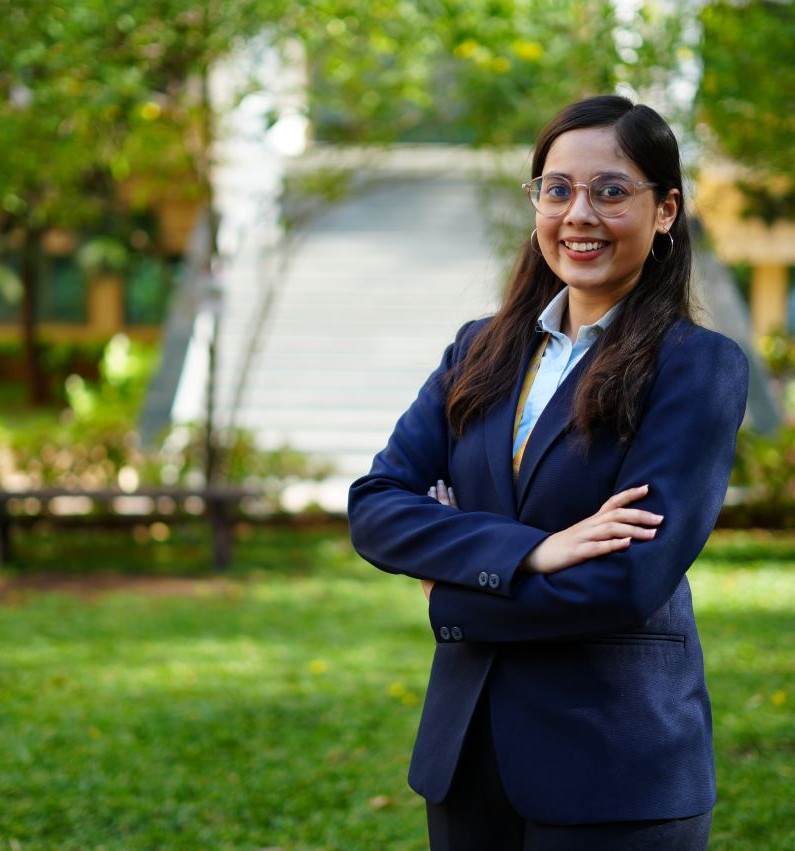
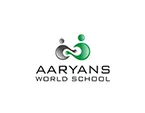
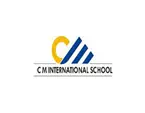

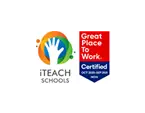
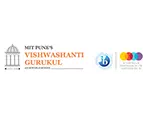
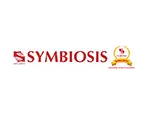






 admissions@mitwpu.edu.in
admissions@mitwpu.edu.in
